May 8, 2017 •
Monday’s Government Relations and Ethics News
Lobbying “Silicon Valley Tech Lobbyists Swarm Brussels” by Harry Cooper and Nicholas Hirst for Politico.eu “Lewandowski Exits Lobby Firm Amid Reports of Foreign Clients” by Jennifer Jacobs and Ben Brody for Bloomberg.com Canada: “Liberals Removed Lobbyists Who Signed Up for […]
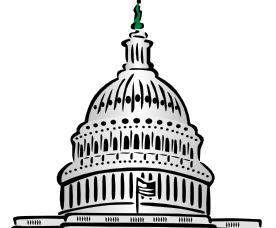 Lobbying
Lobbying
“Silicon Valley Tech Lobbyists Swarm Brussels” by Harry Cooper and Nicholas Hirst for Politico.eu
“Lewandowski Exits Lobby Firm Amid Reports of Foreign Clients” by Jennifer Jacobs and Ben Brody for Bloomberg.com
Canada: “Liberals Removed Lobbyists Who Signed Up for Montreal Fundraiser with Justin Trudeau” by Giuseppe Valiante and Joanna Smith (The Canadian Press) for CBC
Campaign Finance
California: “California Attorney General Targets Political Nonprofits” by Don Thompson (Associated Press) for U.S. News & World Report
Missouri: “Campaign Donation Limits Stay, but Other Parts of Missouri’s New Campaign Finance Law Blocked by Federal Judge” by Kurt Erickson for St. Louis Post-Dispatch
“Nelson Mullins Partner Settles with SEC in Pay-to-Play Suit” by Scott Flaherty for American Lawyer
Ethics
“Trump Eases Ban on Political Activity by Churches” by Jordan Fabian and Naomi Jagoda for The Hill
“The Mystery Behind a Flynn Associate’s Quiet Work for the Trump Campaign” by Matea Gold for Washington Post
Mississippi: “Physician Pleads Guilty to Bribing Mississippi Prison Chief” by Jeff Amy (Assocuated Press) for U.S. News & World Report
Elections
“Ivanka Trump’s West Wing Agenda” by Jodi Kantor, Rachel Abrams, and Maggie Haberman for New York Times
May 5, 2017 •
North Dakota Campaign Finance Law Signed into Law
Senate Bill 2343 was signed into law in April to enhance campaign finance reporting requirements and restrict candidates from using campaign funds for personal expenses. The new law makes changes to the disclosure requirements for PACs and multicandidate political committees, […]
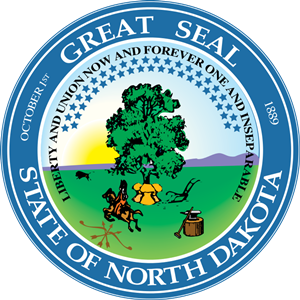 Senate Bill 2343 was signed into law in April to enhance campaign finance reporting requirements and restrict candidates from using campaign funds for personal expenses.
Senate Bill 2343 was signed into law in April to enhance campaign finance reporting requirements and restrict candidates from using campaign funds for personal expenses.
The new law makes changes to the disclosure requirements for PACs and multicandidate political committees, requiring them to file pre-election, supplemental, and annual reports.
Senate Bill 2343 also makes amendments to statements required by measure committees circulating or promoting passage or defeat of initiated or referred measures.
The law becomes effective February 1, 2018, for campaign years beginning after December 31, 2017.
May 5, 2017 •
Hawaii Legislature Adjourns Sine Die
The 29th Hawaii Legislature adjourned sine die on Thursday, May 4. Prior to adjournment, House members elected Rep. Scott Saiki as Speaker of the House. He replaces Rep. Joseph Souki, who resigned after lawmakers failed to come together to pass […]
 The 29th Hawaii Legislature adjourned sine die on Thursday, May 4.
The 29th Hawaii Legislature adjourned sine die on Thursday, May 4.
Prior to adjournment, House members elected Rep. Scott Saiki as Speaker of the House. He replaces Rep. Joseph Souki, who resigned after lawmakers failed to come together to pass certain bills.
Lawmakers passed 233 bills during the 2017 legislative session, including budgets for fiscal years 2018 and 2019.
Pending bills will carry over to the 2018 legislative session.
May 5, 2017 •
NYCU Video Digest – May 5, 2017
See what’s happening in government relations this week in our News You Can Use Video Digest. Enjoy!
See what’s happening in government relations this week in our News You Can Use Video Digest. Enjoy!
May 5, 2017 •
News You Can Use Digest – May 5, 2017
National: Guns and Religion: How American conservatives grew closer to Putin’s Russia Washington Post – Rosalind Helderman and Tom Hamburger | Published: 4/30/2017 A significant shift has been underway in recent years across the Republican right. On issues including gun […]

National:
Guns and Religion: How American conservatives grew closer to Putin’s Russia
Washington Post – Rosalind Helderman and Tom Hamburger | Published: 4/30/2017
A significant shift has been underway in recent years across the Republican right. On issues including gun rights, terrorism, and same-sex marriage, many leading advocates on the right who grew frustrated with their country’s leftward tilt under President Barack Obama have forged ties with well-connected Russians and come to see that country’s authoritarian leader, Vladimir Putin, as a potential ally. The attitude adjustment among many conservative activists helps explain one of the most curious aspects of the 2016 presidential race: a softening among many conservatives of their historically hardline views of Russia.
Federal:
Code Pink Protesters at Sessions Hearing Could Face Year in Prison
New York Times – Christopher Mele | Published: 5/3/2017
A jury convicted three Code Pink activists for disrupting Jeff Sessions’ confirmation hearing to be attorney general, including one who apparently laughed during the hearing. Desiree Fairooz, who dressed up as a pink version of Lady Liberty, was found guilty on charges of parading or demonstrating on Capitol grounds and disorderly conduct. Two other activists, Tighe Barry and Lenny Bianchi, were acquitted on a count of disorderly conduct but were convicted on two separate charges of parading or demonstrating during the hearing. Both men dressed up as Ku Klux Klan members, wearing white hooded robes, and stood up before the hearing started. All three could face up to a year in prison.
Lewandowski’s Firm Appears to Offer Trump Meetings
Politico – Kenneth Voogel and Josh Dawsey | Published: 4/28/2017
A firm co-founded by Donald Trump’s original campaign manager Corey Lewandowski appears to have been pitching clients around the world by offering not only policy and political advice, but also face time with President Trump, Vice President Mike Pence, and senior members of their administration. The previously unreported firm, Washington East West Political Strategies, was created by Lewandowski and fellow Trump campaign veteran Barry Bennett, as well as an Azerbaijani oil executive and an American political consultant who works extensively in Russia, to prospect for political business in Eastern Europe. And Lewandowski and Bennett have created different firms with other partners to prospect in the Middle East, Canada, and Central America, Bennett said.
Top Ethics Officer Challenges Trump Over Secret Waivers for Ex-Lobbyists
New York Times – Eric Lipton | Published: 5/1/2017
The Office of Government Ethics (OGE) sent a letter to the White House and all executive branch agency heads asking for copies of any waivers the Trump administration may have granted to appointees exempting them from ethics rules. The OGE’s director, Walter Shaub, said the Obama administration similarly granted waivers, but the prior administration’s waivers were given “under a narrow set of circumstances” and were posted publicly on the OGE’s website. The New York Times has reported that in at least two instances, the Trump administration “secretly issued” waivers exempting officials from ethics rules.
Trump Transition Staffers Head to K Street Despite Lobbying Ban
Politico – Theodoric Meyer and Michael Stratford | Published: 5/3/2017
Donald Trump barred people who worked on his transition from lobbying for six months afterward, but at least nine people who worked on transition have registered as lobbyists. Many are registered to lobby the same agencies or on the same issues they worked on during the transition. Because of the way the six-month lobbying ban was worded, the former staffers may not be violating it. Regardless, their trips from lobbying to government service and back run counter to Trump’s campaign promise to close Washington’s “revolving door.” They also raise questions about how rigorously the White House will enforce a separate five-year lobbying ban that applies to those serving in the administration.
While in White House, Trumps Remained Selling Points for ‘Very Special’ Philippines Project
Washington Post – Drew Harwell and Matea Gold | Published: 5/2/2017
Four months into President Trump’s tenure, his business relationship with a developer who is one of the Philippines’ richest and most powerful men has emerged as a prime example of the collision between the private interests of a businessperson in the White House and his public responsibility to shape U.S. foreign policy. The potential conflict first came into focus shortly before Trump was elected, when the Philippines’ president, Rodrigo Duterte, named the Trump Organization’s partner on a Manila real estate venture as his top trade envoy. Although promotional videos for Trump Tower in the Philippines were posted online in 2013, the continued presence of the president and his daughter, Ivanka, in marketing materials for the reflects the extent to which they remain key selling points even as they have vowed to distance themselves from their global real estate and branding businesses.
From the States and Municipalities:
Colorado – Colorado Supreme Court Hears Dispute on Whether Legal Fees Count as Political Donations
Denver Post – Tom McGhee | Published: 5/2/2017
The Colorado Supreme Court heard arguments in a case that could decide whether free, or reduced-cost, legal services provided to political groups should be considered contributions under the state’s campaign finance law. In a case stemming from the 2012 University of Colorado Board of Regents race, the Court of Appeals ruled legal services must be treated like political contributions, which limit the amount a single donor can give. The high court has stayed that ruling to allow time for justices to hear the case.
Massachusetts – Regulator Sees ‘Evidence of Violations’ at Thornton Law Firm
Boston Globe – Andrea Estes | Published: 4/29/2017
State regulators are recommending that Massachusetts Attorney General Maura Healey open a criminal investigation of nine lawyers at Boston’s Thornton Law Firm as well as seven of their spouses, concluding the firm’s longtime practice of reimbursing lawyers for political contributions may have broken multiple laws. Michael Sullivan, director of the state Office of Campaign and Political Finance, said in a letter to Healey his office had concluded there is “evidence of violations” of campaign finance laws that require political contributions be made in the name of the actual donor. He said the firm as well as 16 individuals may have broken the law. Sullivan’s letter marked the first time that state officials sought criminal prosecution in a “straw donor” case.
Minnesota – Allegations Against Dai Thao Campaign Reveal Law’s Complexity
Minneapolis Star Tribune – Jessie Van Berkel and Eric Roper | Published: 5/2/2017
The Minnesota Bureau of Criminal Apprehension will investigate allegations of a failed bribery solicitation by St. Paul City Councilperson Dai Thao. Media reports indicated Thao, who is running for mayor, pressured a lobbyist for “resources” before a council vote and his campaign manager later texted the lobbyist to say a campaign donation might get him to “rethink this issue.” Lobbyist Sarah Clarke rejected the offer, citing state bribery statutes. Minnesota law prohibits a public officer or employee from requesting benefits or reward with the understanding that it will influence their power or duties. In the past five years, however, only one public official or employee was convicted under the law.
Missouri – Missouri Governor to Pay Fee for Using Nonprofit Donor List
U.S. News & World Report – David Lieb (Associated Press) | Published: 4/29/2017
Gov. Eric Greitens was fined $1,000 by the Missouri Ethics Commission for violating the state’s campaign finance law. Greitens failed to disclose last year that his campaign obtained a donor list from The Mission Continues, a nonprofit he founded in 2007. Federal law prohibits charities like The Mission Continues from intervening in political campaigns on behalf of candidates. The IRS has ruled charities cannot give donor lists to politicians but can rent them at fair market value if made available to all candidates. The ethics panel said Greitens’ campaign should have disclosed receiving the donor list as an in-kind contribution from his campaign manager, Daniel Laub.
New York – City Pays for Mets Moment, Guided by Firm with Troubled Ties to de Blasio
New York Times – J. David Goodman | Published: 4/30/2017
Several hundred city workers, tourists, and passers-by gathered near the steps of City Hall as Mayor Dill de Blasio again marked the New York Mets’ 1986 World Series victory. The event offered Dwight Gooden, the former Mets pitcher whose battles with drug addiction caused him to miss the original festivities, a chance to relive the moment. The city paid for the event, which had been conceived as a scene for a television series in development, produced by the sports radio host Amy Heart. So how did Ms. Heart get the city not only to pay for the backdrop of a scene in a television pilot but also have the mayor take part? By enlisting the influential lobbying firm of James Capalino, a friend and longtime donor to de Blasio whose business skyrocketed with the mayor’s election.
South Dakota – South Dakota Ethics Bill Lost Teeth on Its Way to Becoming Law
Sioux Falls Argus Leader – Dana Ferguson | Published: 4/27/2017
Four retired judges will be appointed in the coming months to the new government accountability board, forming the nearest thing to a state ethics board that South Dakota has had in nearly four decades. Once convened, the panel will exist as a place for South Dakotans to bring concerns about government fraud, conflicts-of-interest, and other potential wrongdoing. The compromise bill creating the board cleared the Legislature in the wake of protests over lawmakers’ repeal of a major ethics and campaign finance law approved by voters in November. Critics said the new accountability board is at best a tepid step in the right direction and at worst a symbolic move to give lawmakers cover from criticism following the repeal of Initiated Measure 22.
Tennessee – Jeremy Durham Dismisses Campaign Finance Audit, Points Finger in Fiery Letter
The Tennessean – Dave Boucher and Joel Ebert | Published: 5/3/2017
Former Tennessee Rep. Jeremy Durham offered justifications for his actions in response to 690 possible campaign law violations leveled by election ethics officials. While denying essentially any wrongdoing, the 235-page response presented to state election finance officials points the finger at legislators, overly broad state laws, and human error. The allegations against Durham range from using campaign funds to improperly buy sunglasses, suits, and spa products to inappropriately loaning thousands of dollars to his wife, a prominent fundraiser, and a professional gambler.
Texas – How the Federal Case Against John Wiley Price Fell Apart
Dallas News – Jennifer Emily, Gromer Jeffers Jr., and Kevin Krause | Published: 4/28/2017
Dallas County Commissioner John Wiley Price was found not guilty of bribery and six other counts by a federal jury that considered whether he was abusing his public office to collect about $1 million in secret profits over a decade. The jury deadlocked on four tax-related counts and the judge declared a mistrial on those charges. Price is likely the most well-known politician to ever be prosecuted by the federal government in Dallas. His confrontational style and focus on the issues of race and economic equality have made him a controversial figure, but his constituents have re-elected him for three decades. The acquittal is a surprising defeat for the U.S. Justice Department and FBI, who have spent a decade investigating and prosecuting Price.
Vermont – House Passes Ethics Commission Bill with Some Reluctance
VTDigger.org – Mark Johnson | Published: 5/2/2017
The Vermont House passed a bill creating a state ethics commission, overcoming objections about a requirement that lawmakers disclose their spouses’ sources of income. The legislation also prevents lawmakers from becoming lobbyists within a year of leaving their seats, and restricts holders of no-bid state contracts of $50,000 or more from making campaign contributions to certain candidates. A conference committee will have to iron out the differences between the House and Senate versions before the legislation goes to Gov. Phil Scott.
 State and Federal Communications produces a weekly summary of national news, offering more than 60 articles per week focused on ethics, lobbying, and campaign finance.
State and Federal Communications produces a weekly summary of national news, offering more than 60 articles per week focused on ethics, lobbying, and campaign finance.
President Trump signed an executive order today for the purpose of allowing religious institutions to engage more directly in political activity without losing their tax-exempt status. Federal law prohibits tax-exempt religious and charitable institutions from specifically supporting, opposing, or endorsing […]
 President Trump signed an executive order today for the purpose of allowing religious institutions to engage more directly in political activity without losing their tax-exempt status.
President Trump signed an executive order today for the purpose of allowing religious institutions to engage more directly in political activity without losing their tax-exempt status.
Federal law prohibits tax-exempt religious and charitable institutions from specifically supporting, opposing, or endorsing political candidates or risk losing their tax-exempt status. Today’s order, named the Presidential Executive Order Promoting Free Speech and Religious Liberty, does not address charitable institutions covered under the same federal law.
The executive order directs the Department of the Treasury to “not take any adverse action against any individual, house of worship, or other religious organization on the basis that such individual or organization speaks or has spoken about moral or political issues from a religious perspective, where speech of similar character has, consistent with law, not ordinarily been treated as participation or intervention in a political campaign on behalf of (or in opposition to) a candidate for public office by the Department of the Treasury.” The order defines “adverse action” as “the imposition of any tax or tax penalty; the delay or denial of tax-exempt status; the disallowance of tax deductions for contributions made to entities exempted from taxation under section 501(c)(3) of title 26, United States Code; or any other action that makes unavailable or denies any tax deduction, exemption, credit, or benefit.”
Additionally, the order directs the Secretary of the Treasury, the Secretary of Labor, and the Secretary of Health and Human Services to “consider issuing amended regulations, consistent with applicable law, to address conscience-based objections to the preventive-care mandate promulgated under” the Affordable Care Act.
May 4, 2017 •
Arkansas Special Session Adjourns Sine Die
The First Extraordinary Session of the 91st General Assembly adjourned sine die on May 3, 2017. One ethics bill was passed to cleanup legislation passed during the regular session. Four other bills were passed, including a bill regarding the Arkansas […]
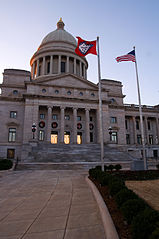 The First Extraordinary Session of the 91st General Assembly adjourned sine die on May 3, 2017.
The First Extraordinary Session of the 91st General Assembly adjourned sine die on May 3, 2017.
One ethics bill was passed to cleanup legislation passed during the regular session.
Four other bills were passed, including a bill regarding the Arkansas Health Insurance Marketplace.
Gov. Asa Hutchinson is expected to sign all five special session bills.
May 4, 2017 •
Several Ethics Bills Introduced in Michigan
Several ethics bills have been introduced in Michigan Legislature. House Bill 4489 prohibits immediate family members of a public officer or employee from accepting gifts tending to influence the manner in which the public officer or employee or another public […]
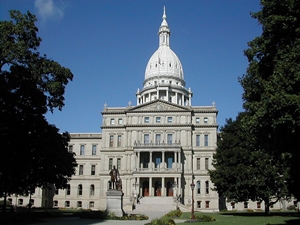 Several ethics bills have been introduced in Michigan Legislature.
Several ethics bills have been introduced in Michigan Legislature.
House Bill 4489 prohibits immediate family members of a public officer or employee from accepting gifts tending to influence the manner in which the public officer or employee or another public officer or employee performs official duties.
House Bill 4526 prohibits, for three years after leaving office, a former member of the Michigan Senate or House of Representatives who was, at any time, the chair of a standing committee, from making expenditures for or receiving compensation or reimbursement for actual expenses for lobbying equal to or exceeding the limit established to require registration as a lobbyist agent.
Similarly, House Bill 4527 prohibits any former member of the Michigan Senate or House of Representatives from being a lobbyist agent for two years after leaving office.
If passed, the bills will become effective 90 days after the end of the legislative session.
The Vermont House approved Senate Bill 8, a measure establishing a state ethics commission and providing greater transparency from those seeking public office. If both houses can agree on a final version, a five-member ethics commission would accept complaints and […]
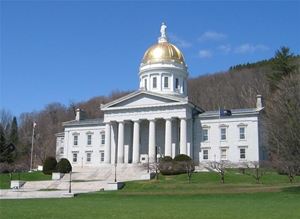 The Vermont House approved Senate Bill 8, a measure establishing a state ethics commission and providing greater transparency from those seeking public office.
The Vermont House approved Senate Bill 8, a measure establishing a state ethics commission and providing greater transparency from those seeking public office.
If both houses can agree on a final version, a five-member ethics commission would accept complaints and assign them to other agencies for investigation. The commission would also compile a report on complaints for the legislature.
The bill would require financial disclosures from candidates and their spouses, with the Senate version requiring disclosure of income tax returns. The bill also prohibits lawmakers and other high-level employees from becoming a lobbyist for one year after leaving office and restricts holders of certain no-bid contracts from making campaign contributions.
A conference committee will now work out the differences before sending the bill to the governor. Vermont is one of five states without a state ethics commission.
May 4, 2017 •
Thursday’s Government Relations and Ethics News
Lobbying “Trump Transition Staffers Head to K Street Despite Lobbying Ban” by Theodoric Meyer and Michael Stratford for Politico “City Pays for Mets Moment, Guided by Firm with Troubled Ties to de Blasio” by J. David Goodman for New York […]
 Lobbying
Lobbying
“Trump Transition Staffers Head to K Street Despite Lobbying Ban” by Theodoric Meyer and Michael Stratford for Politico
“City Pays for Mets Moment, Guided by Firm with Troubled Ties to de Blasio” by J. David Goodman for New York Times
Campaign Finance
Colorado: “Colorado Supreme Court Hears Dispute on Whether Legal Fees Count as Political Donations” by Tom McGhee for Denver Post
Minnesota: “Minnesota Republicans Want to Eliminate ‘Welfare for Politicians’” by Rachel Stassen-Berger for St. Paul Pioneer Press
Tennessee: “Jeremy Durham Dismisses Campaign Finance Audit, Points Finger in Fiery Letter” by Dave Boucher and Joel Ebert for The Tennessean
Ethics
“A Code Pink Protester Laughs Over a Trump Nominee and Is Convicted” by Christopher Mele for New York Times
“While in White House, Trumps Remained Selling Points for ‘Very Special’ Philippines Project” by Drew Harwell and Matea Gold for Washington Post
Vermont: “House Passes Ethics Commission Bill with Some Reluctance” by Mark Johnson for VTDigger.org
Elections
“Comey Forcefully Defends ‘Painful’ Decision on Clinton Probe” by Josh Gerstein and Austin Wright for Politico
May 3, 2017 •
Wednesday’s Government Relations and Ethics News
Campaign Finance “Secret Audit Left D.C. Voters ‘In the Dark.’ Now It Stirs Talk of Election Reform” by Aaron Davis for Washington Post Canada: “PM No Longer Under Investigation for Cash-for-Access Fundraisers, but Ethics Commissioner Won’t Say Why” by Zane […]
 Campaign Finance
Campaign Finance
“Secret Audit Left D.C. Voters ‘In the Dark.’ Now It Stirs Talk of Election Reform” by Aaron Davis for Washington Post
Canada: “PM No Longer Under Investigation for Cash-for-Access Fundraisers, but Ethics Commissioner Won’t Say Why” by Zane Schwartz for National Post
Massachusetts: “Can a Congressman Use Campaign Funds to Give You Free T Rides?” by Nicole Dungca for Boston Globe
Utah: “Utah Attorney General Makes a Trump Shortlist, and Donations Pour In” by Matt Apuzzo for New York Times
Ethics
“Ethics Office Details Conflict of Interest Rules for Ivanka Trump” by Olivia Beavers for The Hill
“Trump Starts Dismantling His Shadow Cabinet” by Michael Grunwald, Andrew Restuccia, and Josh Dawsey for Politico
Minnesota: “BCA to Investigate Bribery Solicitation Allegations Against St. Paul Mayoral Candidate Dai Thao’s Campaign” by Jessie Van Berkel for Minneapolis Star Tribune
New York: “Chaos at Rikers, but City Jails Chief Was Gone for 90 Days” by William Rashbaum and Michael Schwirtz for New York Times
Elections
“Emboldened by Trump but Divided by Generations, Democrats Look to 2020” by Alexander Burns and Jonathan Martin for New York Times
May 2, 2017 •
April Photo Scrapbook
Check out some photos from recent events!
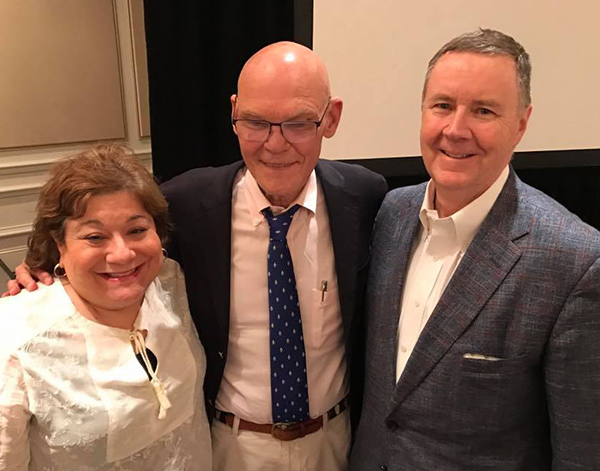

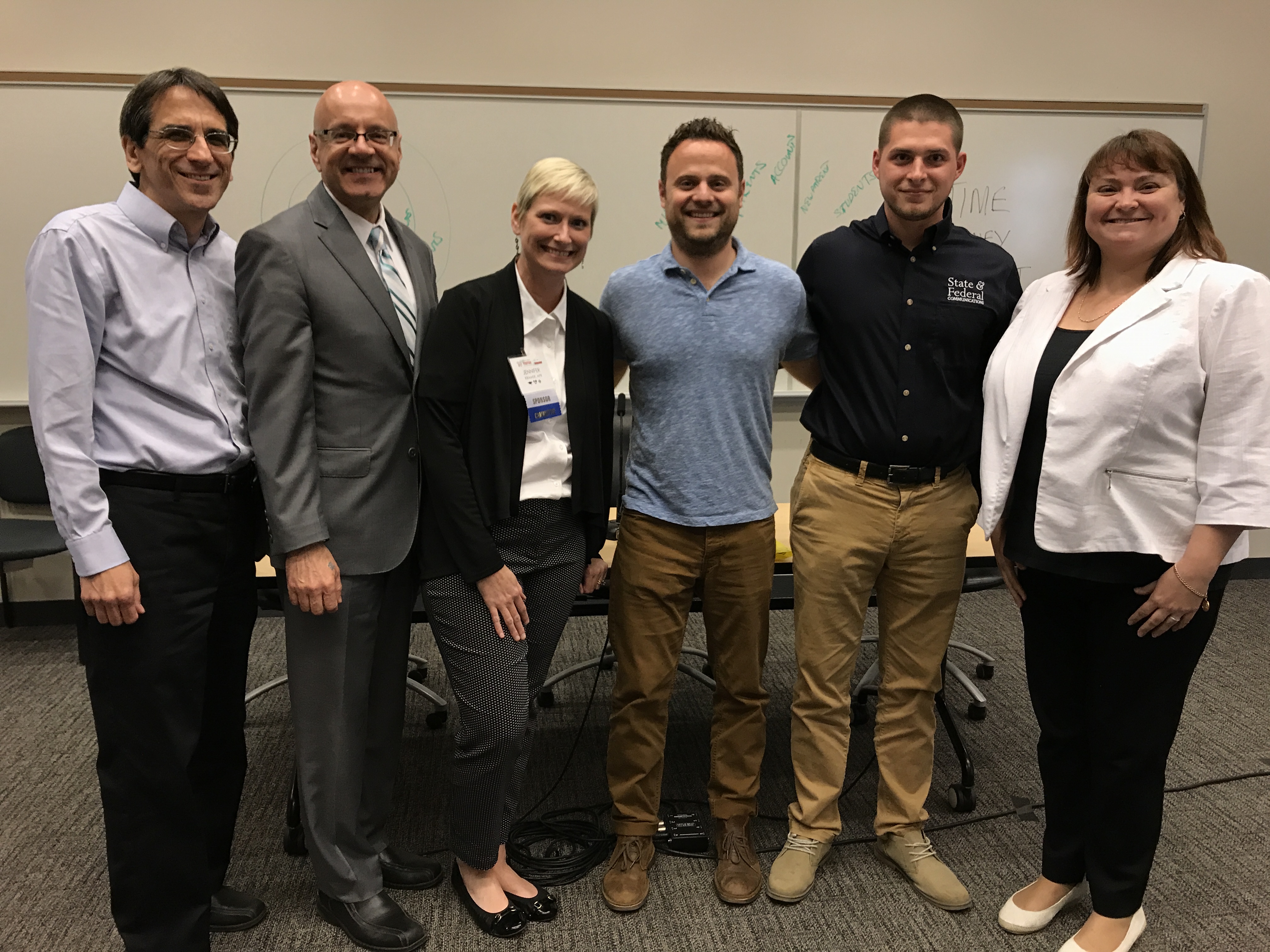

On April 30, the Nova Scotia House of Assembly was dissolved in order to call a provincial general election. The Chief Electoral Officer, Richard Temporale, issued writs of election for all of Nova Scotia’s 51 electoral districts. The provincial general […]
 On April 30, the Nova Scotia House of Assembly was dissolved in order to call a provincial general election.
On April 30, the Nova Scotia House of Assembly was dissolved in order to call a provincial general election.
The Chief Electoral Officer, Richard Temporale, issued writs of election for all of Nova Scotia’s 51 electoral districts.
The provincial general election will be held on Tuesday, May 30.
The 91st General Assembly adjourned sine die on May 1, 2017. A half hour after adjourning, the Legislature convened a special session. The special session was called to address approving authorization for Arkansas Works waivers, restructuring the Arkansas Health Insurance […]
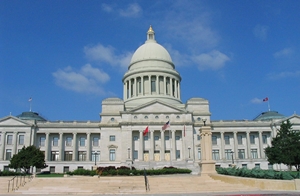 The 91st General Assembly adjourned sine die on May 1, 2017. A half hour after adjourning, the Legislature convened a special session.
The 91st General Assembly adjourned sine die on May 1, 2017. A half hour after adjourning, the Legislature convened a special session.
The special session was called to address approving authorization for Arkansas Works waivers, restructuring the Arkansas Health Insurance Marketplace, cleaning up medical marijuana laws, and boosting long-term reserve funding for Arkansas.
The special session is likely to adjourn by the end of the week.
State and Federal Communications, Inc. provides research and consulting services for government relations professionals on lobbying laws, procurement lobbying laws, political contribution laws in the United States and Canada. Learn more by visiting stateandfed.com.


